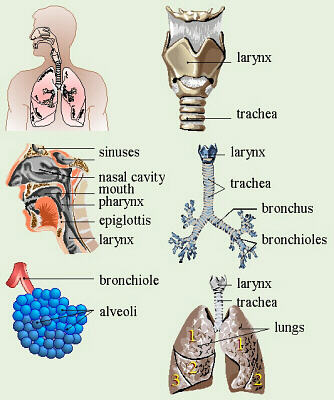-

Sociology, Human groups and their effects on man
Nursing Notes – Sociology and Psychology Module Unit: CN-1203 – Sociology and Psychology Contact Hours: 60 Credit Units: 4 Module Unit Description: This module unit introduces students to Sociology and Psychology basing on the concepts of Sociology and Psychology. An introduction shall be made on the human behaviour and how it is influenced by culture,…
-

Organs of Special Senses
Nursing Lecture Notes – Organs of Special Senses (Comprehensive) Organs of Special Senses The special senses are how our body perceives specific types of information from the external environment. Each special sense has specialised sensory receptors that detect a particular type of stimulus (like light, sound waves, chemicals) and convert it into nerve impulses that…
-

The Respiratory System
Nursing Lecture Notes – The Respiratory System (Complete) The Respiratory System Learning Objectives Upon completion of this lecture, students will be able to: Identify the organs of the upper and lower respiratory tracts. Describe the detailed anatomy of the nasal cavity, pharynx, larynx, trachea, bronchial tree, and lungs. List and explain the multiple functions of…
-

Sanitation
Nursing Lecture Notes – Sanitation Sanitation Sanitation is the proper disposal of refuse and excreta. AIMS It prevents breeding of flies It prevents breeding of mosquitoes and other insects. Prevents contamination of food, water, air. DISPOSAL OF REFUSE Refuse are present both in towns and rural areas and they should be disposed of in a…
-

Food Hygiene and Control
Nursing Lecture Notes – Food Hygiene Food Hygiene and Control Food hygiene refers to all the conditions and measures necessary to ensure the safety and suitability of food at all stages of the food chain. Poor food hygiene is a major cause of foodborne illnesses, which can range from mild gastroenteritis to life-threatening infections. Introduction…
-

Safe water supply
Nursing Lecture Notes – Safe Water Supply Water Water is the liquid that forms the rivers, lakes, swamps, rain etc. and is the basis of fluids of living organisms, it is essential for life and forms 60% of body weight. COMPOSITION OF WATER Composition: Water is composed of two parts hydrogen and one part oxygen…
-

Housing, Ventilation and Lighting
Nursing Lecture Notes – Housing, Ventilation & Lighting Housing, Ventilation and Lighting Housing is a critical component of the physical environment. Good housing protects against the elements, reduces the risk of disease transmission, and promotes physical, mental, and social well-being. Housing in Relation to Health The quality of housing has a direct impact on health.…
-

Introduction to environmental hygiene
Nursing Lecture Notes – Environmental Hygiene Introduction Topic 1.16: Environmental Hygiene/Sanitation Introduction to Environmental Hygiene in Healthcare Objectives This module will provide the knowledge necessary to: Explain why there is a need to maintain a clean environment to prevent the spread of infections. Discuss cleaning and disinfection requirements for clinical settings like ambulatory surgery centers.…
-

Introduction to personal hygiene
Nursing Lecture Notes – Personal & Communal Health Personal Hygiene Module Unit Description: Covers elements of personal health and principles of maintaining a healthy environment, including hygiene practices for health promotion and behavior changes for proper sanitation. Learning Outcomes for this Unit: By the end of this unit, the student shall be able to: Describe…
-

Personal and Communal Health (PCH)
Nursing Lecture Notes – Personal & Communal Health Module Unit CN-1105: Personal and Communal Health (PCH) Contact Hours: 45 Module Unit Description: Covers elements of personal health and principles of maintaining a healthy environment, including hygiene practices for health promotion and behavior changes for proper sanitation. Learning Outcomes for this Unit: By the end of…
